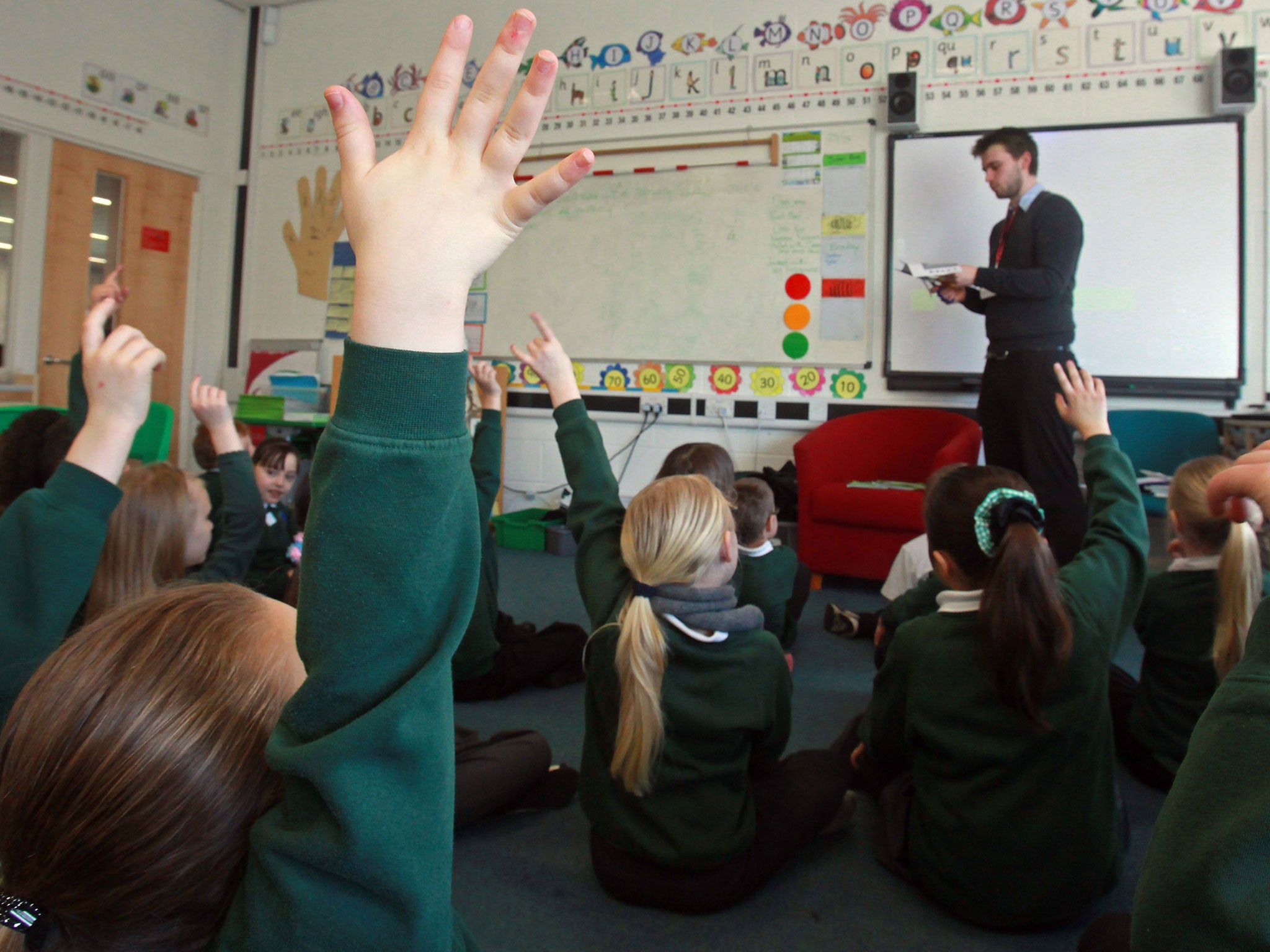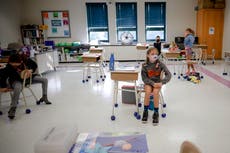A generation of teachers risks being burnt out by their efforts to keep schools open this autumn
Ministers would do well to remember that England’s school system teeters on the brink – the long-term impact on teachers could be catastrophic, writes Ed Dorrell


Being a teacher is tough. It is no secret that the demands placed on our schools and those that work in them have become harder and harder to meet in recent years.
It is easy to have a passionate debate about whether ratcheting up that pressure is the best way to improve standards for children and students – and it's certainly not black and white – but that is for another day.
Because while we are used to being told that the school system has become stressed to the point of breaking – austerity, league tables, Ofsted visits are to blame, say unions – into this potent mix has been thrown the most poisonous ingredient of all: Covid-19.
Coping with the next few months will be the biggest test of resilience the school system has faced for a very long time – possibly ever. Getting schools open, and all students back at their desks, at the start of term was no small achievement; keeping them there could yet prove a much greater challenge. There are several reasons to worry.
Firstly, and most obviously, increasing infections. Reports are regularly surfacing of both primaries and secondaries being forced to shut because of outbreaks in their student bodies, or even in their staff rooms. With such a diverse school sector, and with a vast array of approaches to social distancing and “bubbling”, heads have responded to outbreaks in many different ways – and more and more now feel obliged to close.
But, of course, this isn’t just about positive test results; this is also about how hard it is to get hold of the tests themselves, and therefore how many students and teachers are unnecessarily in quarantine. This is something that is really piling on the pressure for schools and those that oversee them: local authorities and multi-academy trusts.
Staffing levels are falling to unsustainable levels because teachers are not being allowed – or are unwilling – to work. It is worth remembering that teachers, many of whom are 65 and over, are understandably nervous about not knowing what is going on, and who has the virus.
Then you have the parent perspective, which is too often informed by half-truths, hyperbole and social media. Heads report that one of the biggest challenges they face in these hideously uncertain times is the rumour mill beyond the school gates about what is actually happening in the classrooms and corridors. Who is and isn’t ill? Who is and isn’t properly socially distancing? The entire fabric of the wider school communities is beginning to fray.
Finally, there is the growing unease about what will happen during the next exam season and whether schools will be held to account for the results that follow this most disrupted of years. I fully expect some kind of GCSEs and A-levels to be sat – and that is the right thing to do – but if you are only holding your school together through sheer-bloody-mindedness, the idea that a series of exams deciding your fate and that of your students, will go ahead as if nothing has happened will seem daunting.
It is true that the system has not yet fallen over. Many, many heads, schools and multi-academy trusts are proving themselves more resilient than they could ever have believed. They are innovating at a scale and pace that they might not have thought possible and communities are pulling together in the most wonderful ways.
These successes must be celebrated but that does not mean that there aren’t many other schools and headteachers that are about to burn out. This might not come right in the midst of the coronavirus pandemic, but in the months and years that follow – decompressing from working in a crisis of this scale is going to be too hard for many to manage.
Universities and their locked down students might currently be in the glare of the media spotlight, but, as we head towards the most fraught winter that most can remember, ministers would do well to remember that England’s school system teeters on the brink.
Ed Dorrell is director of Public First




Join our commenting forum
Join thought-provoking conversations, follow other Independent readers and see their replies
Comments